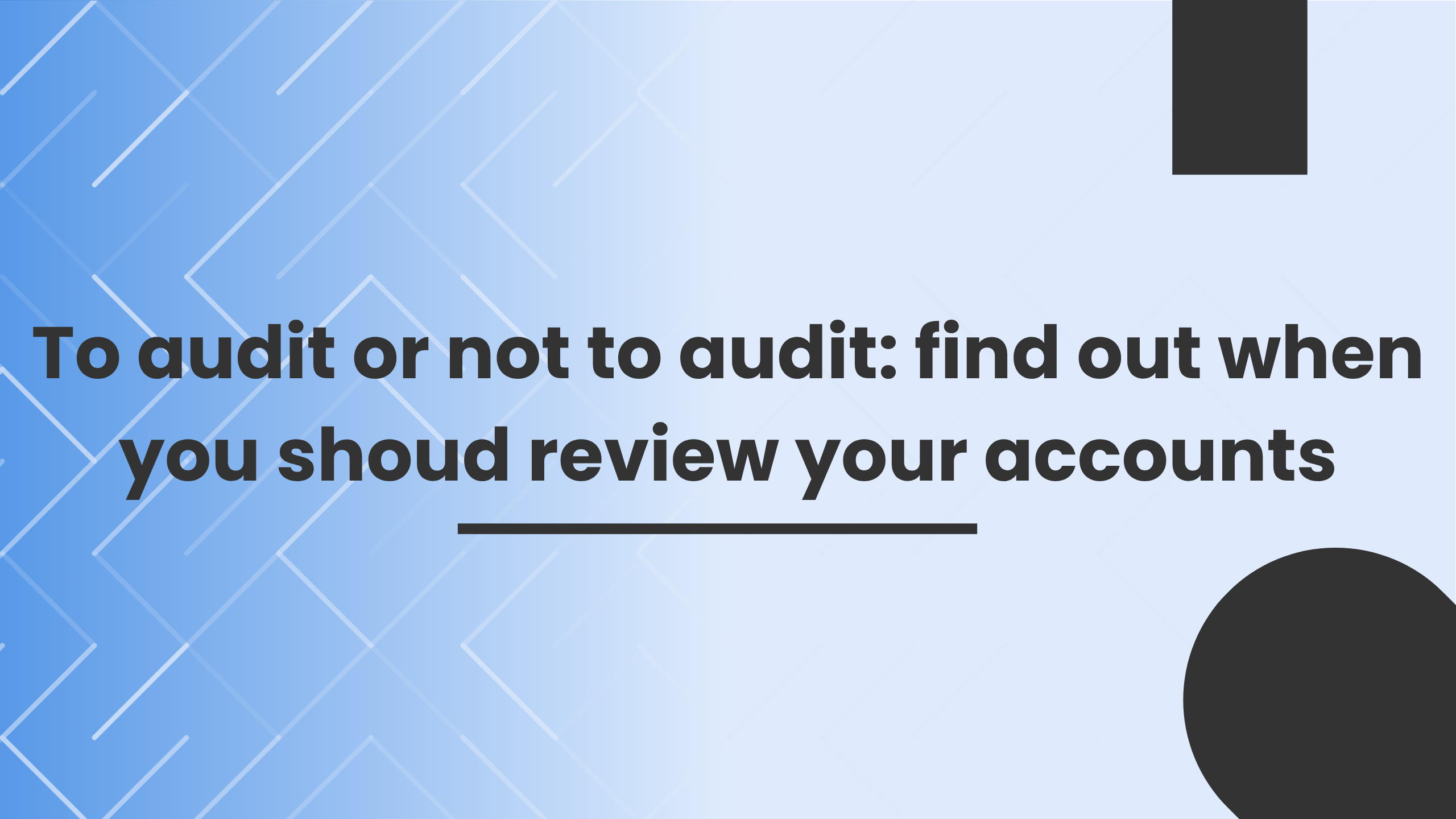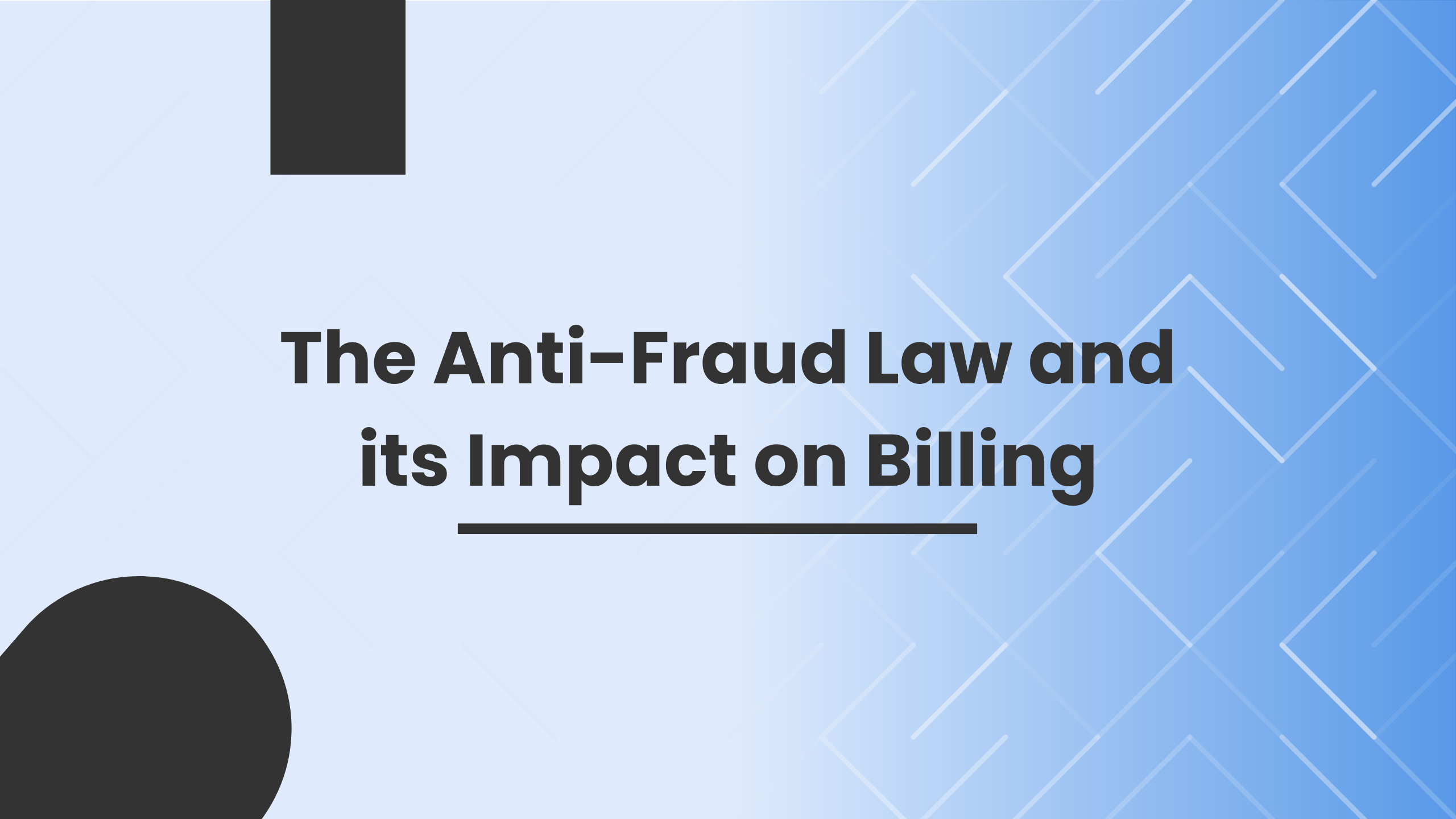To audit or not to audit: find out when you shoud review your accounts

Content:
Have you wondered if your company should undergo an audit? Find out if you are required to do so here and avoid penalties.
The business world is full of obligations and deadlines that can be overwhelming, especially if you're unfamiliar with accounting. One of the most common questions among entrepreneurs and small business owners is:
When is it mandatory to audit my company's annual accounts?
Don't worry, InnoTaxes will explain it to you clearly and directly.
What is an audit and why is it important?
An audit is a detailed review of your company's financial statements conducted by an independent professional (the auditor) to verify whether they accurately reflect the company's financial situation.
In addition to being a legal requirement in certain cases, auditing provides confidence to third parties such as banks, investors, suppliers, and public administrations.
Deadline for preparing the annual accounts
If your fiscal year coincides with the calendar year, you have until March 31 to prepare the annual accounts for the previous year, according to article 253 of the Capital Companies Act .
*Formulate means to prepare, sign and prepare accounts for subsequent approval and deposit.
Many companies advance this process if they need to submit audited documentation for:
Participate in public tenders.
Apply for grants.
Obtain bank financing.
In these cases, having your accounts audited and deposited may be essential. At InnoTaxes, we help you coordinate the entire process in advance.
When is it mandatory to audit the annual accounts?
The first additional provision of Law 22/2015 on Auditing of Accounts lists the cases in which an audit is mandatory. This regulation refers to other laws and requirements that may be difficult to interpret if you lack accounting or legal training.
Therefore, in this article, we explain the main assumptions in a practical and orderly manner:
1. Due to the nature of your business activity
You should audit your accounts if your company:
It issues securities that are listed on official markets or multilateral trading systems.
Issues bonds in a public offering.
It is dedicated to financial intermediation (such as credit institutions or investment services companies).
Its corporate purpose is activities related to private insurance, pension funds or management entities thereof.
2. By receiving public aid
If your company has received subsidies or public aid (including European funds) for more than €600,000 in a financial year, you are required to audit the accounts for that financial year and for the financial years in which the related investments are made.
3. By contracting with the Public Sector
You are required to audit if, during a financial year:
You have entered into contracts with the Public Sector for a total amount exceeding 600,000 euros , and
That figure represents more than 50% of your annual turnover (i.e., your net sales).
The obligation applies to both the current and the following fiscal year.
4. By the size of the company
Your company must be audited if, for two consecutive fiscal years , it meets at least two of these three conditions at the end of the year:
Total assets (everything the company owns) exceed 2,850,000 euros .
The net turnover (annual net sales) exceeds 5,700,000 euros .
The average number of employees during the year is over 50 .
These thresholds are established by law. Remember to consult a good advisor to review them so you don't get caught off guard.
5. Specific cases for housing cooperatives
A housing cooperative must audit its accounts if any of the following situations occur:
It has more than 50 homes or premises under development.
The promotion is divided into different phases or blocks that constitute different promotions.
Has granted business management powers to persons outside the Governing Council.
6. Specific cases for foundations
A foundation is required to audit if it meets, during a financial year, at least two of these three requirements:
Total assets exceeding 2,400,000 euros .
Total income (own activity + commercial activity) exceeding 2,400,000 euros .
More than 50 workers on average during the year.
7. Other assumptions
There may also be an obligation to audit if:
The statutes of the entity expressly establish this.
The partners agree on this at a general meeting.
Shareholders representing at least 5% of the share capital must apply to the commercial registrar within three months of the end of the fiscal year.
What happens if my company doesn't meet any of these requirements?
If you do not fit any of the above assumptions, you are not required to audit your annual accounts.
Still, doing it voluntarily can bring you significant benefits:
Improve transparency with partners and investors.
Strengthen your company's image with banks or public entities.
It allows to detect accounting errors or risks .
Facilitates access to financing or grants .
With the InnoTaxes platform , you can manage your invoices quickly and easily, keeping track of your income and strengthening your financial position.
An important fact about the appointment of the auditor
In most cases, the auditor must be appointed by the general meeting of shareholders before the end of the fiscal year to be audited.
If this has not been done within that period, or if the appointed auditor does not accept or cannot perform the duties, the directors or any partner may request the commercial registrar to appoint one.
Conclusion
An audit is much more than a legal obligation: it's a tool for control and trust. Knowing if and when you're required to undergo an audit allows you to avoid penalties and improve your business management.
If you have any questions, we'll be happy to help. We'll analyze your situation and advise you so you can comply with the regulations with peace of mind and without surprises.
Click here to book a free consultation and start your journey to perfect, hassle-free accounting .


